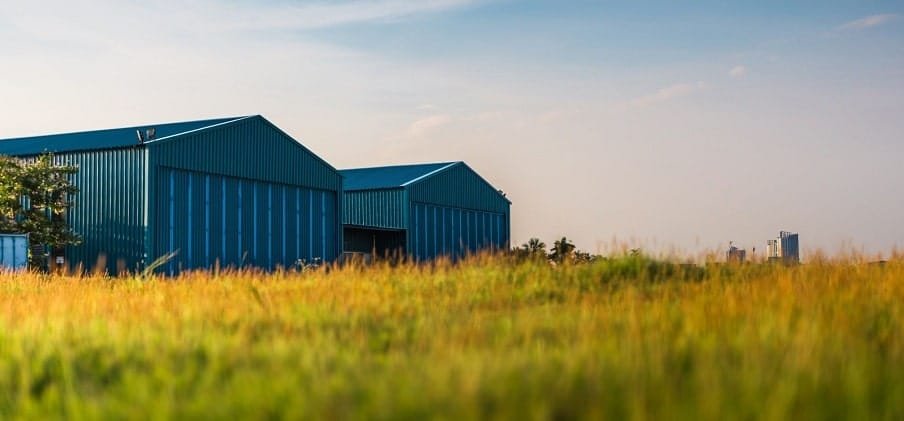A farm shed is not just a storage facility; it is a critical feature in any farm setting that plays a significant role in the successful running of farming activities. Farm sheds provide well-protected and organized premises to store utensils, house livestock, and manage farm produce, and hence, serve various purposes that help farmers ensure efficiency and productivity. The practical benefits of farm sheds will make informed decisions on how to invest in agricultural infrastructures and, at the same time, keep a properly flowing operation while protecting many valuable resources.
Equipment Protection and Organization
Protection of equipment is one of the significant advantages of large farm sheds. Much investment includes tractors, ploughs, harvesters, and specialized tools for particular purposes. Overexposure to rain, wind, snow, or sun will cause rust, corrosion, and general wear, reducing the equipment’s useful life span. A farm shed provides a sheltered and secured place where the machinery can be housed away from these elements, thereby preserving the value of the equipment. Apart from protection, farm sheds offer farmers a neat area to store their tools and equipment. Rather than simply scattering the equipment over the property or taking it indoors daily, a shed makes access relatively easy, thus making daily operations run smoothly. Accurate storage allows farmers to locate what they need quickly, hence minimizing time wastage and improving the work cycle on the farm.
Livestock Shelter
Another significant benefit associated with farm sheds is their application in providing shelter to livestock. In most farming processes, livestock is critical in producing milk, meat, and even wool. Indeed, proper shelter will have significant implications on the health and general productivity of the animals. Farm sheds can provide shelter from the scorching sun, rain, wind, and even harsh weather conditions. The farm sheds will allow the animals to feel comfortable and secure, reflecting on their well-being, hence giving out higher productivity in aspects such as increased milk yields or better animals to be sold. Farm sheds also create space for managing activities around the livestock, like feeding or milking and even shearing, depending on the animals. Having a place set aside ensures that the performance of these tasks is efficiently and safely executed.
Produce and Feed storage
Proper storage in a safe, dry area is essential in avoiding spoilage and contamination of harvests and animal feed. Farm sheds allow farmers to store their produce and feed safely. Inclement weather can decimate crops left unprotected and feed, causing significant losses. A decent farm shed that has ventilation and is weatherproof will go a long way in preserving the products being stored. Farm sheds can also store, sort, and arrange different kinds of feed, grains, or produce. This could be vital for inventory control to ascertain that older stock is used before its expiration date to enhance resource management on the farm.
Supporting Maintenance and Repairs
Farming equipment, fencing, and other infrastructure need frequent maintenance and repair. A farm shed can provide space for a workshop where any repairs can be carried out, even when the weather does not permit. Similarly, this reduces downtime since machinery and tooling do not have to go elsewhere for servicing. This also helps in quicker responses in case of breakdowns that help minimize inconvenience to farming operations. This might be further facilitated by sheds designed with workstations and tool storage. Since all tools and equipment are within reach, farm operations may run smoothly and efficiently when repairs are in order.
Versatility for Expansion of Operations
Farm sheds can be flexible to meet the changing needs of the farming operation. A well-designed shed would accommodate an increase in livestock, changes in farm equipment, or changes in what is farmed. A farmer may initially use a shed strictly for equipment but later can use that shed for housing additional animals or storing new types of crops. The shed’s versatility in its usage makes it a long-term investment in which the growth of the farm’s needs is matched. The sheds could also be customized to add features such as climate control, partitioning, or ramps supporting specialized farming activities and enhancing farm diversification.
Large farm sheds are indispensable to agricultural success and efficiency. Whether they protect precious equipment, shelter livestock, store feed, or even support repair work, they form one multitasking unit necessary for seamless farm operations. Money spent on a good-quality farm shed is an excellent, practical investment decision that offers long-term benefits, as the farm’s infrastructure will be solidly built to last and adapt to the evolving needs in agriculture. Farmers can also work out the best utilization of resources by knowing these benefits and raising their total output.
